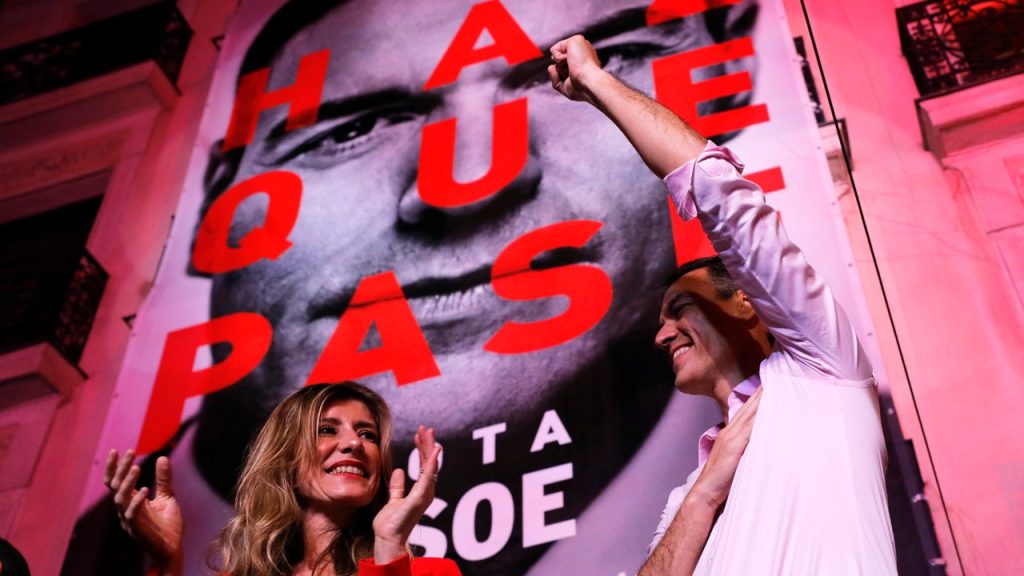Thousands of Spanish journalists rallied behind Socialist Prime Minister Pedro Sánchez after he announced that he was considering resigning following a court opening a preliminary investigation into corruption allegations against his wife. Sánchez attributed the probe to attacks from right and far-right opponents in the media and political parties. In response, journalists and writers signed a manifesto condemning the attacks on Sánchez’s wife as a deliberate attempt to undermine the will of the people expressed in recent elections. The manifesto criticized a campaign of falsehoods and harassment against members of leftist coalition governments, accusing right-wing parties, media, businesses, and judicial members of financing and coordinating these attacks.
The legal complaint against Sánchez’s wife, Begoña Gómez, was filed by a far-right legal platform called Manos Limpias, or “Clean Hands.” The group accused Gómez of using her position to influence business deals, basing their claims on newspaper articles. Spanish prosecutors have suggested that the complaint should be dismissed, indicating it may lack credibility. The signatories of the manifesto called for civil society to join their cause and mobilize against what they deemed an anti-democratic assault on the government. They emphasized that governments are chosen and removed through democratic processes, urging for the rejection of what they labeled as a judicial and media coup designed to spread misinformation.
The opposition Popular Party criticized Sánchez’s response to the allegations, dismissing it as a desperate attempt to gain support ahead of upcoming regional and European elections. Sánchez’s supporters planned a demonstration in Madrid in solidarity with the Prime Minister, underscoring the divide between those who viewed the investigation as politically motivated and those who believed in the importance of accountability and transparency in governance. The manifesto highlighted the need to resist attempts to manipulate public opinion through misinformation and biased reporting, calling for a united front against what they saw as an orchestrated effort to tarnish the government’s reputation.
The ongoing controversy surrounding Sánchez’s potential resignation has created a stir in Spanish politics, with different factions interpreting the situation through their respective lenses. Sánchez’s decision on whether to step down is eagerly awaited by both his supporters and detractors, as it could have far-reaching implications for the country’s political landscape. The growing polarization between left and right forces in Spain has further fueled tensions, with accusations and counter-accusations being thrown across the political spectrum. The outcome of this saga remains uncertain, but the unity displayed by journalists and writers in standing up against what they perceive as an attack on democracy reflects the deep-seated concerns regarding the integrity of the country’s institutions.
As the Prime Minister prepares to make an announcement on his future, the public mood remains divided, reflecting the broader ideological and political fault lines in Spanish society. The outcome of this saga could have significant repercussions for the upcoming elections and the overall stability of the government. The journalists’ manifesto calling for resistance against what they view as an assault on democratic principles serves as a reminder of the importance of upholding the rule of law and safeguarding the integrity of public institutions. The unfolding events in Spain underscore the challenges that democratic societies face in navigating the complex intersection of politics, media, and the judiciary, highlighting the need for vigilance and collective action to protect the democratic process from undue influence and manipulation.


